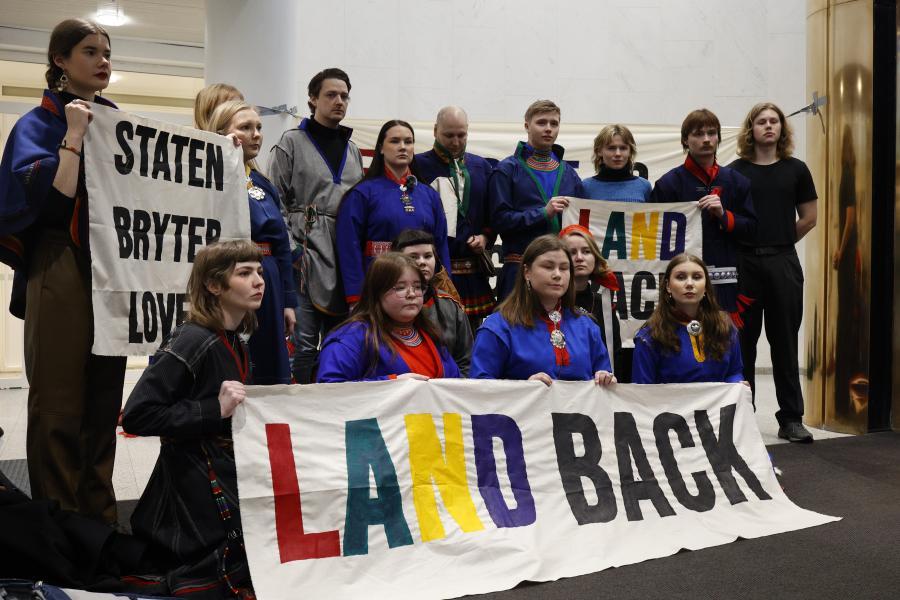The Norwegian University of Tromso Center for Sami Studies is at the forefront of Sami advocacy, research, sustainability studies, education, and cultural preservation. The University offers specialized degrees, hosts lectures, steers committees, holds forums, provides multilingual courses, and awards grants to scholars and organizations. Much of their efforts are aimed specifically at sustaining and studying the Sami culture.
This year the center is offering or supporting a number of groundbreaking and exciting new programs. Three of the most recent programs to be established are a new Masters degree in indigenous studies, fellowships, and a comprehensive study of reindeer husbandry and the threats facing this way of life. The Masters program will be taught in English in an effort to attract students from around the world. It offers comparative perspectives, grounded in research-based experience on issues faced by the Sami and other indigenous groups, many areas of which are unique to the University of Tromso. It is thought to be the first program of its kind, and the University plans to begin accepting applications in March 2003, with a start date for the program in August 2003. Frequently updated information on these programs is available here.
In support of the new Masters program, the NORAD Fellowship provides scholarships for students from developing countries to study at the Masters level in Norway. This program is administered by SIU, a Norwegian public agency that promotes multi-cultural cooperation in education, and is a new vehicle for Norway to contribute to competence building and institutional development in the South. NORAD fellows are invited to a week of discussions at a Winter Seminar in Gausdal during the first week of 2003. There they will discuss a range of topics related to the NORAD program, offering an opportunity for students to come together and share with each other their own particular backgrounds and perspectives.
For the Sami and many other indigenous Arctic peoples, raising reindeer is central to their livelihood. With this in mind, the Arctic Council initiated a two-year-long reindeer husbandry program, striving to thoroughly evaluate reindeer herding and husbandry in relation to economic and cultural sustainability in the Arctic, with particular emphasis on the experience and situation of indigenous peoples. In Norway, Sweden, Finland, Russia, and Alaska, surveys and assessments of reindeer husbandry examine national and local economic and social conditions, management issues and the legal status of reindeer husbandry. Since its start on October 1, 2000 (slated to end on December 31, 2002) the project has made great progress, identifying a number of potential solutions to each region's reindeer crisis. Overall, it was found that the decline in the reindeer industry directly correlates to indigenous poverty, decline in ethnic traditions, problems within families, and health issues. The final report, presented on October 9, 2002 in Finland, proposed a variety of positive solutions to these problems. To read further about threats to reindeer herding and husbandry and possible community solutions see


